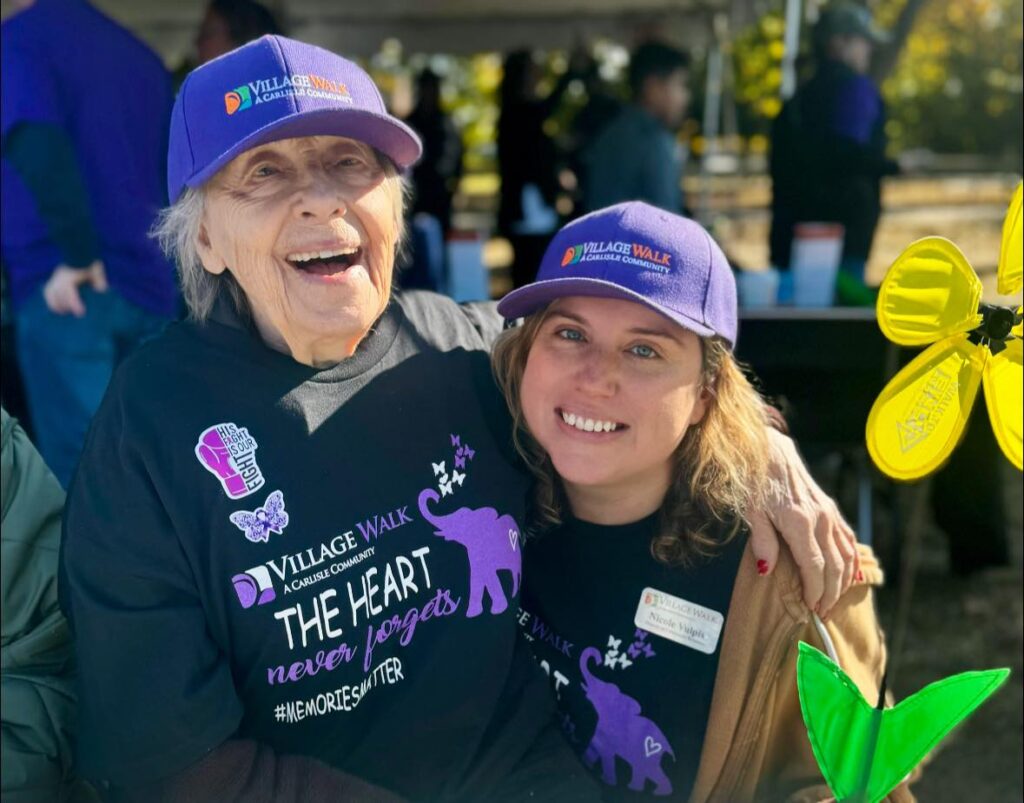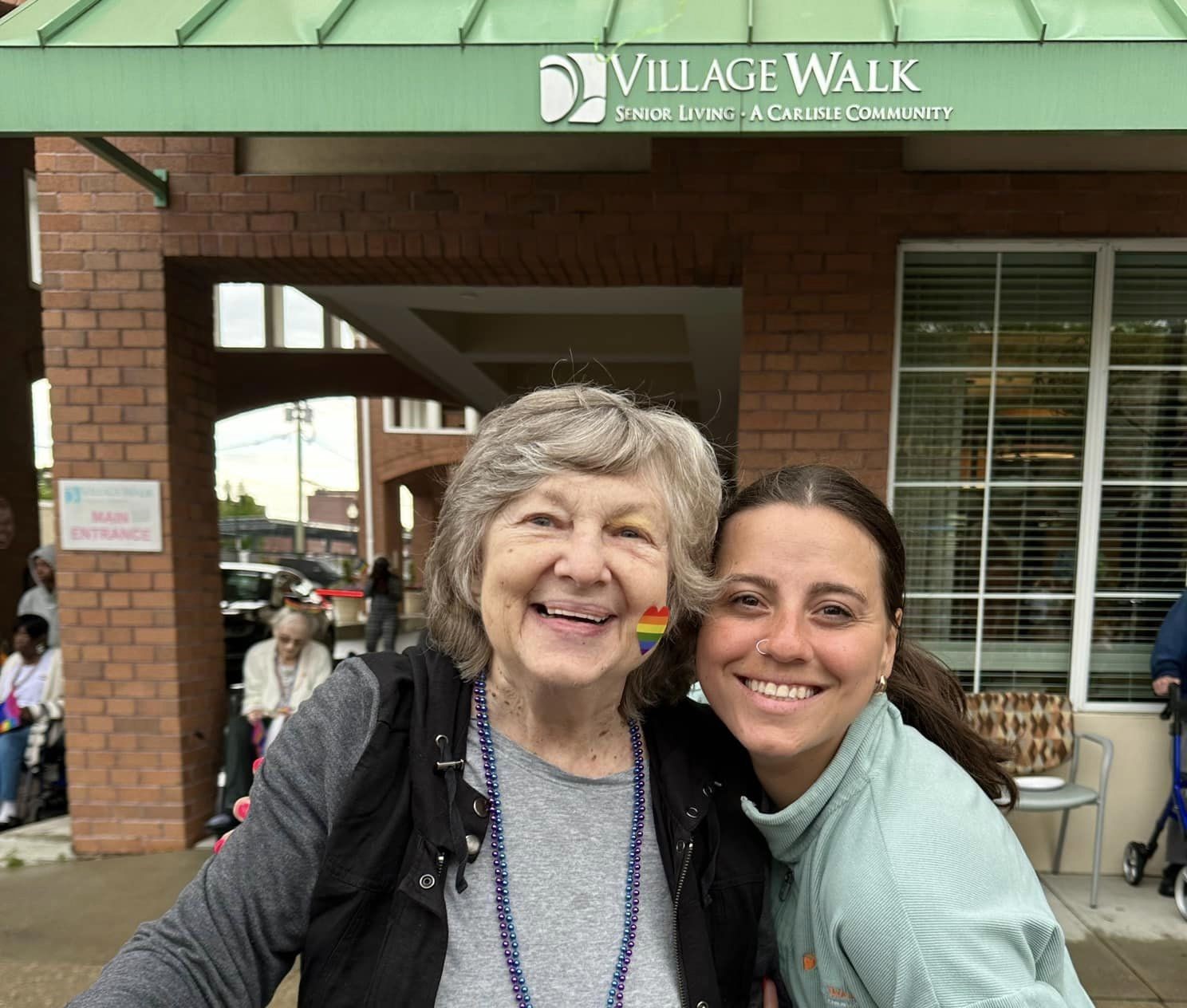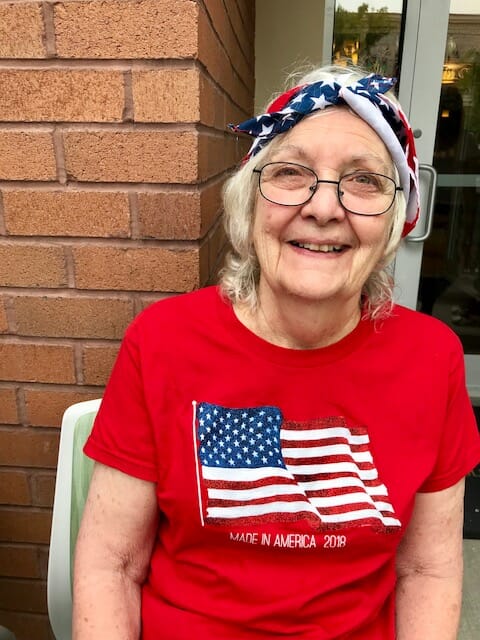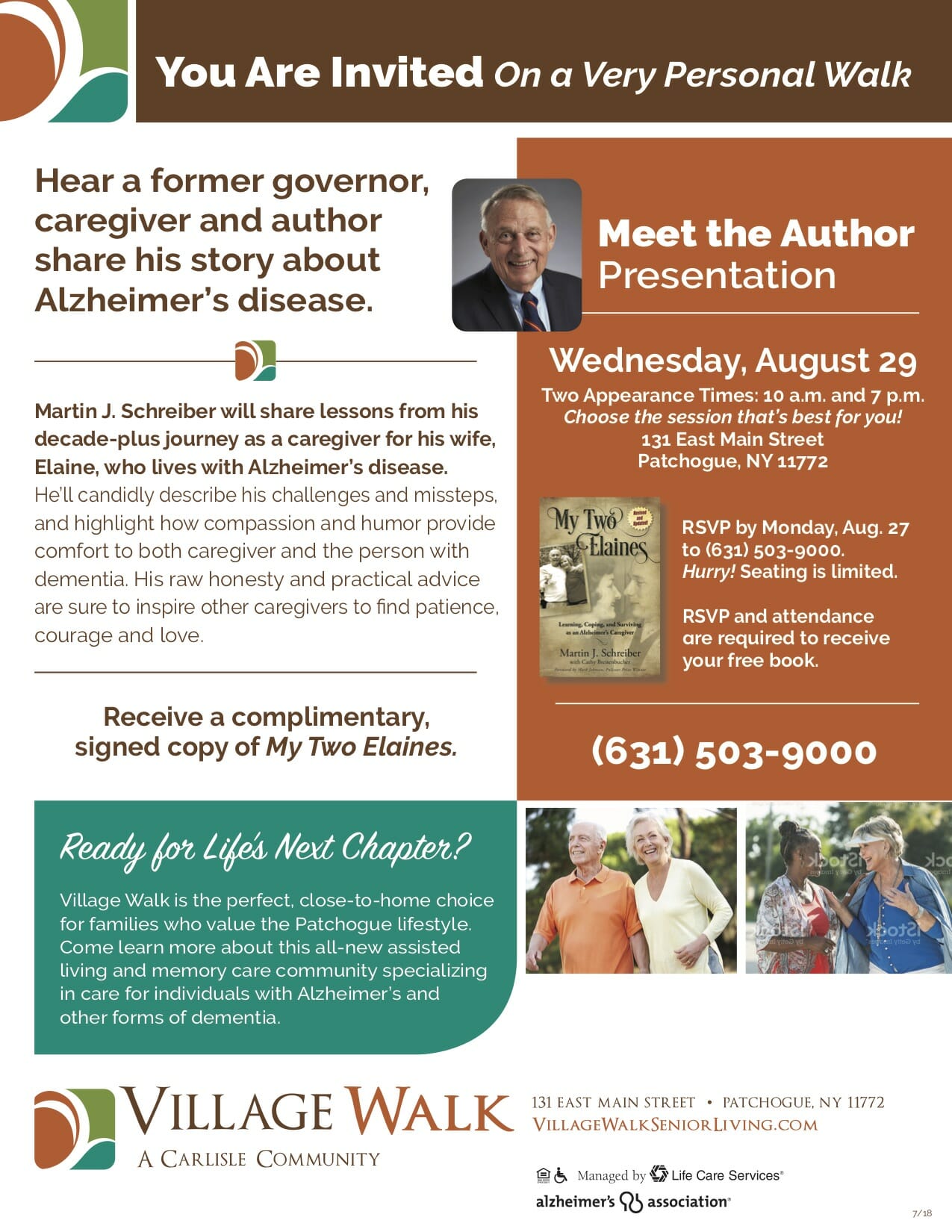Don’t ask direct questions, listen and learn, and don’t contradict. That’s the TL;DR summary of the three golden rules of dementia. But applying them in the wrong context — and not knowing what to expect at each stage of dementia — can make using these rules much more challenging.
After all, one person might need direct questions, while another might need short, concise directives. So, how do you know where each golden rule applies?
The short answer is that it depends on which stage — and which sign or signal — the person shows. And we’re about to show you just that.
At Village Walk, we’re all about empowering you, the caregivers. Our dedicated senior concierge staff, caregivers, therapists, and healthcare professionals have more than 30 years of experience providing dedicated assisted living and memory care support to seniors, their families, and their caregivers.
If you’re hoping to empower yourself with knowledge for the road ahead, including what to say and not to say to someone with dementia, read on.
Here’s a brief introduction to dementia, including the three golden rules of dementia communication.
The stages of dementia: what to expect

Dementia progresses at different stages for each person. Since each person experiences dementia in different ways, breaking down dementia into different stages can be helpful when understanding how to best help people live and thrive.
The dementia stages can be broken down as follows:
- Early-stage dementia: this stage of dementia is characterized by occasional forgetfulness. Many people live a normal life during this stage, but minor lapses in cognition can occur. Most people still live in their homes, and dementia has a minor impact on life.
- Early and middle-stage dementia: dementia becomes more noticeable. Many dementia patients live a rich and full life, but they begin to experience symptoms like memory loss, confusion, and difficulty reasoning. Many people choose assisted living, memory care, or skilled nursing at this stage.
- Final stages of dementia: of the seven stages of vascular and other-related dementias, the final stages of dementia are characterized by more frequent and severe symptoms. A person in the final stages of dementia may experience more severe cognitive and physical decline. Multiple caregivers may be needed to provide the higher levels of care the person needs.
Signs/signals: when a person with dementia needs memory care

For someone with a progressive memory-related condition such as Lewy body dementia, you’ll notice warning signs indicating the extent of their condition.
If you notice any of the below changes, signs, or signals of dementia, you should consider enlisting the help of a licensed and accredited assisted living or memory care facility.
- Mental health declines: assisted living or memory care might be right for you or your loved one if you begin to notice changes in personality or mood. What’s more, instances of memory loss and forgetfulness, irritation and agitation, paranoia, or hallucinations are other indicators that specialized caregiving and support may be in order.
- Physical health declines: another warning sign of dementia is physical health. If you notice unexplained weight loss or poor nutrition due to forgetfulness in eating — or if you notice decreased coordination with basic gross and fine motor movements — assisted living or memory care support can help.
- Struggling to perform activities of daily living (ADLs): Personal hygiene, forgetting to eat, skipping medications, becoming disoriented or confused, and having trouble with basic housekeeping are common signs and signals of dementia progressing.
- Safety and well-being: For example, many people with dementia may wander off for extended periods of time, leave household appliances on, fall more often, and place themselves at risk for injury. If a person poses a risk to themselves, the professional expertise of a compassionate and resourceful caregiving team can help with safety concerns.
- Respite care: caregivers often bear a great deal of stress when caring for people with dementia. To help shoulder the load, respite care at an assisted living or memory care facility can help decrease stress for a primary caregiver and provide comprehensive support for a loved one with dementia.
With the above-mentioned signs and signals, the golden rule here is that the sooner that a person with memory loss can receive the help they need, the better they’ll be able to manage a quality of life.
Whether that support takes the form of assisted living or memory care is up to each individual.
There’s no doubt, though, that having a professional team of responsive caregivers can help all parties maintain a higher quality of life.
Peace starts with three golden rules of dementia

Caregivers and family members: armed with knowledge, you’ll be better positioned to provide exceptional care for your loved one.
But that’s just the half of it. The other half lies in quality communication.
We rely on the SPECAL method — Specialized Early Care for Alzheimer’s — to inform how we communicate with people living with dementia.
Here are three golden rules of dementia when communicating with people living with dementia:
- Don’t ask direct questions related to memory recall: since recall of factual information is affected with dementia, asking a person questions, such as, “Did you remember to take your medication?” can leave a patient with dementia upset. Asking a person memory-related recall questions may remind them of their disability and thus create unwanted stress and frustration.
- Listen to the person with dementia, and learn from them: They are the experts in this situation. For someone with dementia, how they feel may be more important than the facts of a situation. Since the person isn’t always able to remember what happens, you’ll want to assume the perspective of the person with dementia. Consider giving responses that will make the person with dementia feel good and that may not always be based in common sense. As caregivers for those with dementia, our goal is to ensure that we’re doing everything in our power to relieve as much anxiety as possible around memory-related issues.
- Don’t contradict the person: Most importantly, don’t argue with or “fact-check” what someone living with dementia says. More often than not, the person relies on memories from before their dementia diagnosis to understand what’s happening in the present. Our role, as caregivers, is to meet our loved ones where they’re at. Meeting them where they’re at means taking careful note of the language they use, not disturbing their sense of inner tranquility, and allowing them to take the lead on the journey ahead. The more we can follow them, the more we can guide as needed.
Did you know?
Many people think that Alzheimer’s and dementia are the same. People use the terms interchangeably.
But, there are distinctions between the two.
It’s important for effective treatment and management to know these differences. Our team is dedicated to providing top-notch support and care for seniors and their families impacted by both diseases.
To see how we’re supporting our seniors with memory loss, check out our photo gallery on social media!
Table: The three golden rules of dementia
| Rule | Detailed Explanation |
| 1. Don’t ask direct questions. 2. Listen and learn from the person living with dementia. 3. Don’t contradict. | 1. Avoid asking questions that rely on memory recall. Instead, frame your questions in ways that make the person feel comfortable and relaxed. Be receptive to what the person is asking, and try to take their perspective. Ask yourself: what’s the best way to answer their question given their perspective? 2. Frame the information you provide them in a way that makes the person feel heard and accepted for who they are. 3. Avoid arguments, fact-checking, or trying to correct them. Our job is to meet them where they’re at and avoid disrupting the world they’re trying to make sense of. We need to follow them with grace and kindness. |
Provide comfort and compassion for people with dementia

In addition to the three golden rules of dementia care — not asking direct questions, listening and learning, and not contradicting a person with dementia — compassionate care is key.
After all, we simply don’t know what it’s like to have dementia. So, we must always deliver care services from a place of compassion and love.
That’s our ethos at Village Walk. Our signature Meet Me Where I Am program is centered on understanding and adapting to the moment.
By joining individuals in their current reality, we navigate memory loss with empathy and respect.
Whether you’re considering assisted living or memory care for a loved one — or if you’re hoping to learn more about how to help your loved one thrive — we’re here for you.
For all your memory-related questions, don’t hesitate to contact us. Our friendly caregiving team would be more than happy to support you along your journey.
Frequently asked questions (FAQ) about dementia

What are the three golden rules of dementia?
The three golden rules of dementia as spelled out according to the Specialized Early Care for Alzheimer’s (SPECAL) method include:
- Don’t ask direct questions related to memory recall.
- Listen to and learn from the person living with dementia. Let them be the expert.
- Don’t contradict the person living with dementia.
Can a person with dementia live at home?
They can, yes. Worth noting is that each individual case of dementia is different.
Some people with dementia need more resources than others. While some people live with dementia for decades, others find that their condition can deteriorate more quickly.
For the latter, receiving professional caregiving assistance at an assisted living and memory care facility may be best for that individual.
Note: If you ever come across someone in public who you believe may have dementia, and they appear lost and confused, follow Rochester, NY Police Department’s C-05-07 protocol on Communicating with Persons Exhibiting Dementia.
You never know: you could save someone’s life.
What should I look for to determine a dementia diagnosis?
While many signs and signals exist that reveal the onset of dementia, the following are the most common:
- Mental and physical health starts declining (for example, noticeable changes in personality and mood can occur. Memory loss, forgetfulness, and poor nutrition can occur due to forgetting to eat or take medications.).
- Performing activities of daily living becomes more challenging (for example, difficulties taking medication, preparing meals, and completing typical housekeeping chores).
- Safety and well-being may be endangered (for example, more falls and more wandering).
“My loved one is in a loving, caring place.”

“The Village Walk Memory Care Unit provides loving care for its residents. All staff members are attentive to the needs of those suffering with dementia. In addition the needs of family members are also addressed.
Dementia is a debilitating disease. However, I’m comforted by the fact that my loved one is in a loving, and caring place.” – Jim R., grateful Village Walk family member




